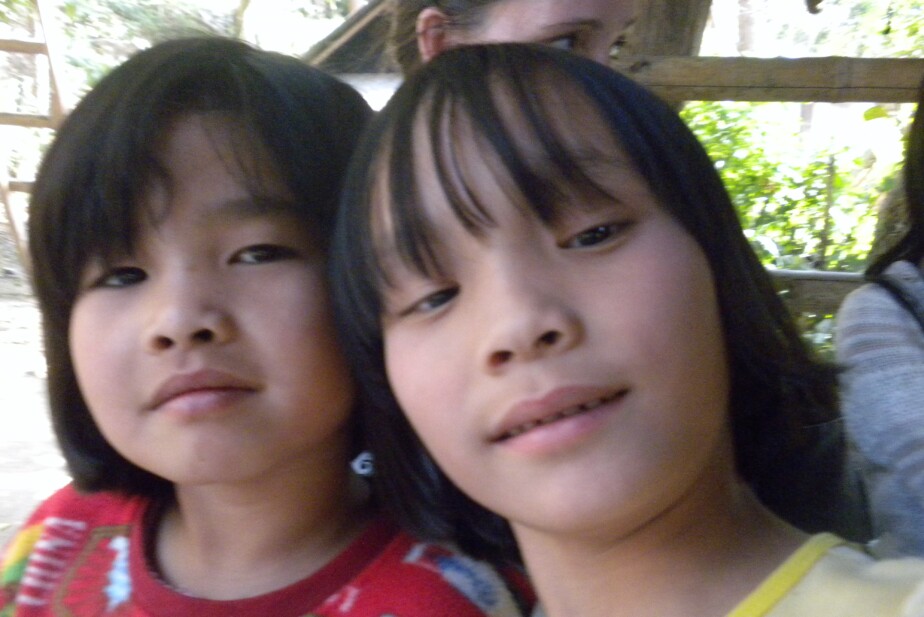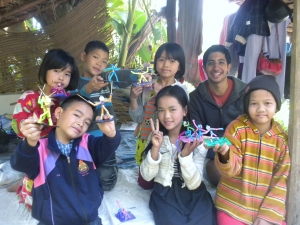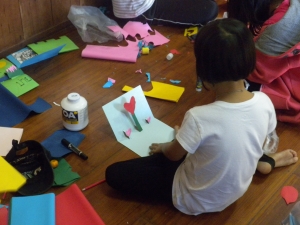
On Tuesdays and Thursdays, and Sunday mornings, I teach a class of ten students for an hour and a half, and Sunday lessons are always followed by a craft. Most of the students are nine and ten years old. Their English is very basic, so my lessons are structured toward teaching them consonant and vowel sounds (which they already know, but need regular revision) and basic vocabulary. One of the hardest concepts for them to grasp is the addition of “s” to the end of plural objects because in Thai, no word is ended by the “s” sound. On the weekdays, I teach them in the evenings after they come back from school, so it is more difficult to keep their attention than on the weekends. That’s why I usually stick in a game to help them practice vocab, and at the end, give them 10-15 minutes to color.

Teaching this group is definitely a challenge for many reasons. Number one, I teach at one of their houses, so parents can be a distraction. Number two, kids walk in at different times. In my last lesson, I began with 4 kids, and every 5 minutes, another student would walk in, meaning that a majority of the kids missed a large part of the lesson. Number three, there is a big language barrier. For me, this is an exciting challenge. This is the first country I have been in where my language skills have been extremely limited, so communicating with broken phrases and hand motions is a fairly new experience for me. But to help me out, I’m taking Thai lessons, and every day that I teach, communication becomes somewhat easier as I put my newly learned words and phrases to use. A lot of times, though, the kids make fun of my pronunciation and roll on the floor laughing, but I laugh along with them, pestering them for the correct pronunciation.
The second group I teach ranges in age from 12 to 14 years old, and I co-teach their lessons on Fridays and Sunday afternoons with the other intern. Their English comprehension is much better than the younger group’s, and they are more attentive. On Fridays, we start off the lesson with a spelling test on recent vocabulary. Afterwards, we either do grammar or vocabulary practice. Similar to the younger group, a concept difficult for them to grasp is the addition of an “s” to verbs on the “he/she/it” conjugation, so we always have to stress that. On Sundays, we either do a craft or some sort of educational activitiy after the lesson. Last week, the students had to go into town and practice their English by asking tourists a few questions about their trip to Pai. The kids, of course, were terrified, but they ended up doing a great job!


This intern experience is really keeping me busy, with lesson planning, teaching classes, and side responsibilites outside of teaching. Some days I work up to 8 hours straight, and the weekends are pretty exhausting. But after I finish a lesson, the energy and hospitality of the kids always leave me in high spirits, no matter how roughly or smoothly the lesson ran, and thankful that I have this opportunity to be with them.
